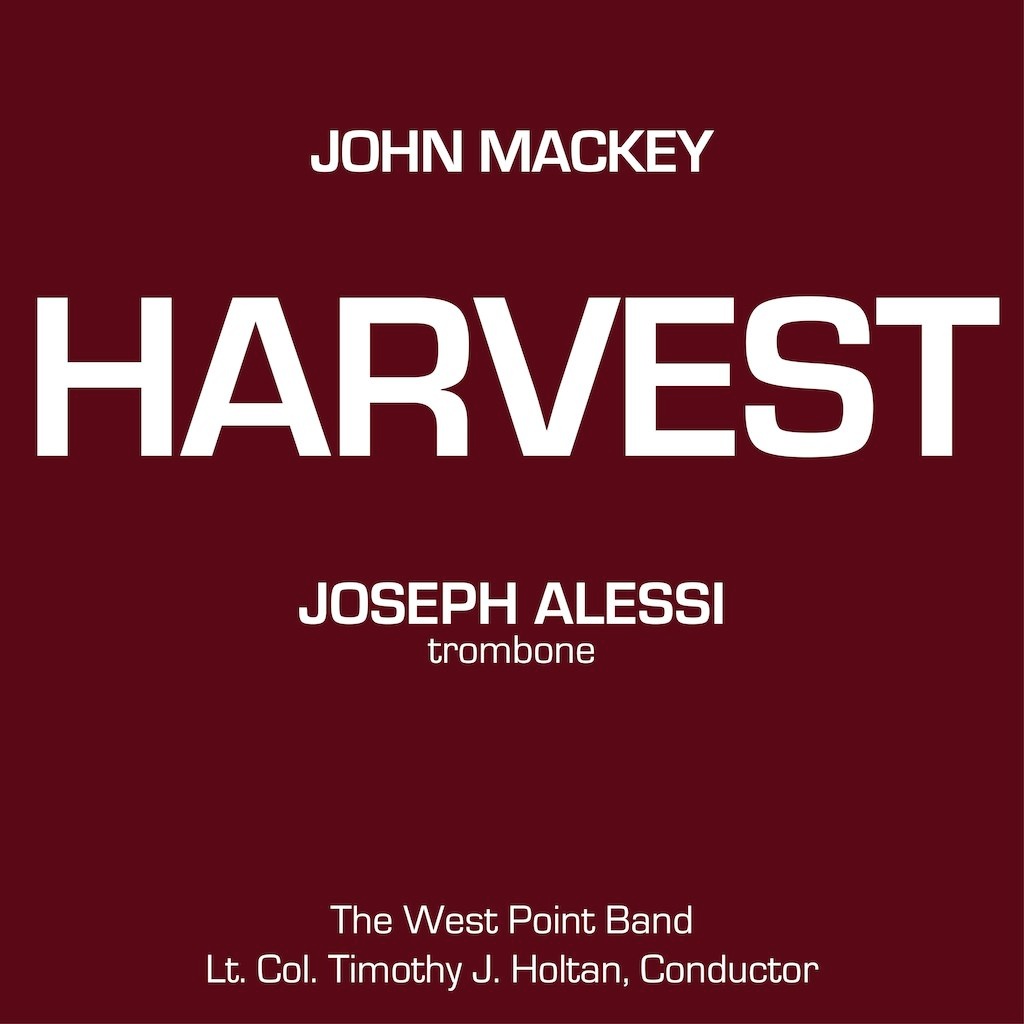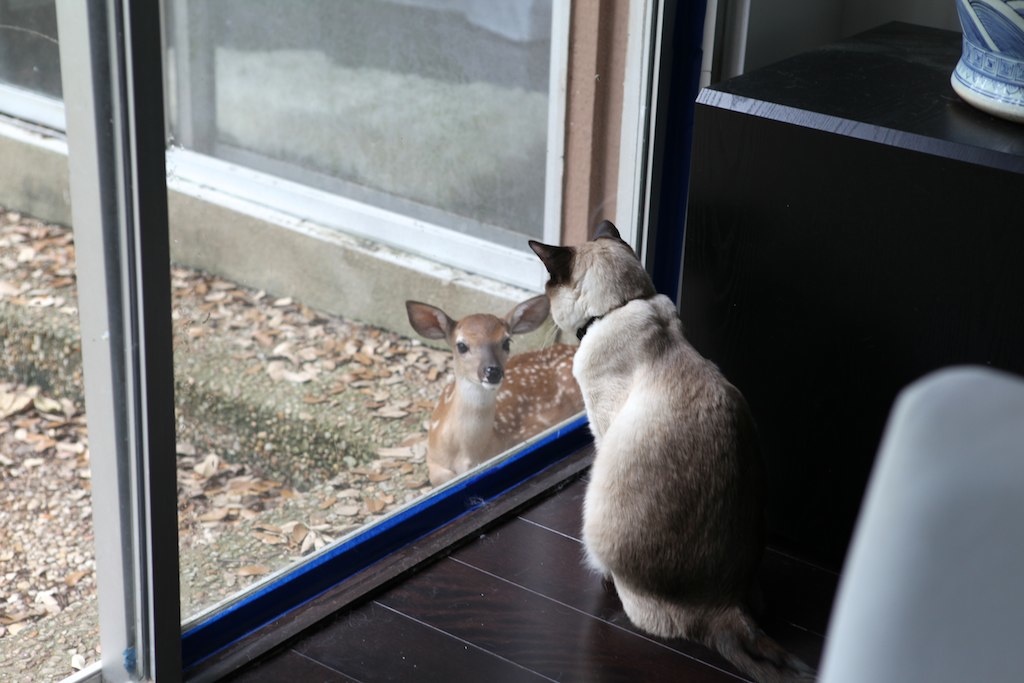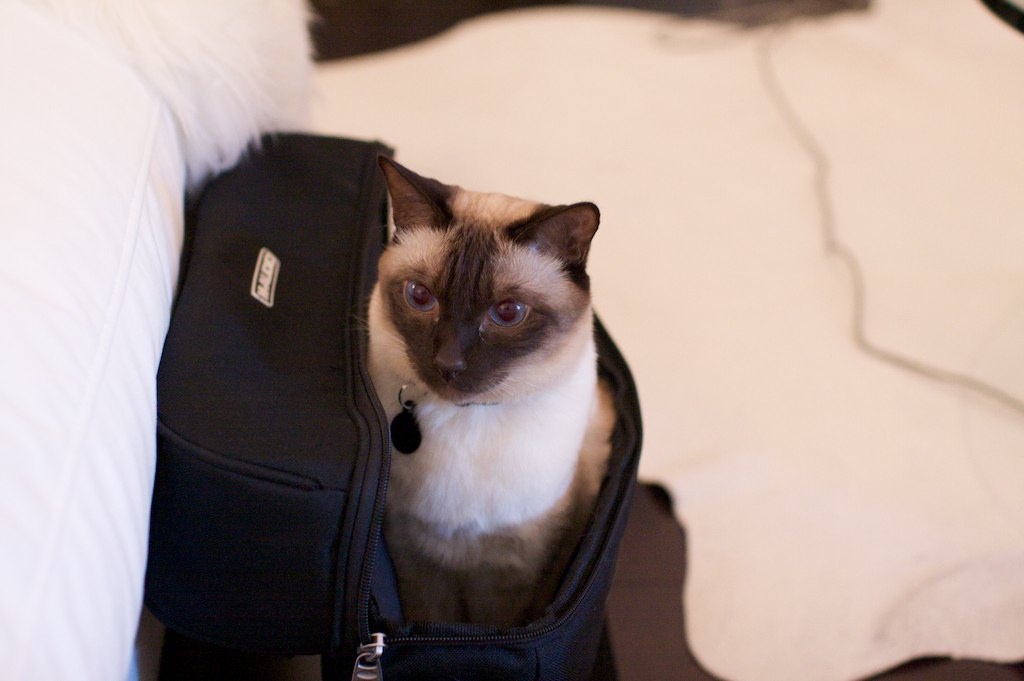January 29, 2011
Music Publishing part 2: audio
Back in 2009, I wrote a blog post about why (and how) I self-publish my own music. In short, it’s because a music publisher takes anywhere from 50-90% of a composer’s income, and that’s a terrible business model for any composer who is able and willing to do that same work themselves (and today, most composers can do that same work even better). Then I wondered: Did the same apply to the publishing of recordings? Could a composer successfully distribute a recording without a record label? If so, is it worth the trouble? This blog entry’s text is pretty dry, so I will liven it up with unrelated photographs of Loki.
I just released my first recording directly to iTunes (via CDBaby, as true “indie” artists can’t actually distribute directly through iTunes). It’s the recording of “Harvest: Concerto for Trombone,” as recorded by Joseph Alessi with The West Point Band, conducted by LTC Timothy Holtan. This same recording is freely streaming on my website, and will continue to be available that way, but if somebody wants to purchase a copy to keep and listen to when they aren’t online, it’s now on iTunes.
For those interested in how album releases normally work, and how this approach is different, read on.
Let’s say I write a piece. (I know, it’s a crazy idea.) A university band records the piece, and then they give (literally give – no money changes hands) that master recording to one of the recording companies for distribution. There may be exceptions, but I don’t know of any school that ends up getting any back-end earnings from that recording. The recordings are typically made for publicity purposes, so all the school wants in return for releasing the recording is for people to hear the recording and think, Damn, that’s a hell of a music program. So, the school is happy.
By law, the music publisher — that is, the owner of the copyright for the recorded work (in this case, me) — receives a mechanical license fee. For the “world premiere recording,” the publisher can ask any fee they like, or they can flatly refuse the release of that recording. (According to legend, this is what happened with most of the music of Warren Benson — he simply refused permission to release most recordings while he was alive.) So, the publisher has absolute control of the first — but only the first — recording of a piece.
Once there’s an existing recording, though, the publisher loses the right of refusal, and the right to name the royalty rate. For every subsequent recording, the publisher only receives the mechanical statutory license rate for each sold recording, and that license rate is mandated by law. How much is that? I mean, it must be, like, a few dollars per CD sold, right?
Not at all. The current statutory rate — applicable for all recordings after that first recording — is $0.091 cents per copy for every track 5-minutes or less, or, $0.0175 per minute for tracks over 5 minutes. So, taking a track like “Redline Tango,” the statutory rate due to the publisher is :
track length of around 9:30, rounded to 10 minutes= 10 minutes X $0.0175 = $0.175. So, $.17-and-a-half cents per sold copy.
In theory, at least. Major labels like Naxos are vigilant about paying the mechanical royalties, but a lot of very small CD labels neglect to obtain licenses, or, even after securing licenses, fail to pay the royalties until somebody catches them. Unfortunately, it’s entirely up to the publisher to police this, and few large music publishers take the time to do so. (Needless to say, I do take the time, because time spent looking for license infringements is much easier than time spent actually writing music.)
But let’s give everybody the benefit of the doubt and say that for every download of “Redline Tango” that iTunes sells, $0.175 goes to the publisher of the piece (me). I don’t think I’ve ever sold 500 copies of any recording on iTunes, but for the sake of argument, let’s pretend that I sell 500. So…
500 copies X $0.175 per copy = a grand total of…
$87.50.
Wait, wait, wait. The publisher of a 10-minute piece of music could sell 500 copies of that piece (and 500 is nothing to sneeze at — that’s a lot of copies for a recording of a piece of “new music”), and make less than $90? Yes. And if the composer has a standard publisher agreement (sigh), the publisher takes half of that, and the composer receives the other half, for a grand total of $43.75.
Clearly, Loki does not approve of this pittance.
How much money was there to begin with?
The track was $0.99. iTunes keeps roughly 30%, leaving $.69. Then the record label pays the mechanical royalty of $0.17 to the publisher, leaving $0.52 for the record label. But they must be paying a bunch of that money to the recording artist, right?
That depends. With a college band, no, the band doesn’t get any back end, as I said earlier. So the label retains $.52 — roughly three times more than the music publisher receives. And again, if a composer has a standard publisher agreement, the music publisher keeps 50% of that $.17, so the composer actually only gets about $0.08 per download/album sold. That’s 8 cents per track to the composer, compared to 52 cents to the record label.
This model makes sense when you think of the expense of printing, marketing, and distributing hundreds of physical CDs. But when was the last time you bought a physical CD? I honestly can’t tell you when I last bought a physical CD, but just two days ago, I bought a digital album on iTunes. (If you’re curious, it was the Esa-Pekka Salonen recording of Rachmaninoff Piano Concertos 2 & 3, with Yefim Bronfman and The Philharmonic Orchestra. It’s fantastic, by the way. I know it isn’t super edgy for a composer to admit, but I love that 2nd Rachmaninoff concerto. That guy could write a damn pretty tune.)
As the publisher of my own music, what do I get in exchange for that $.52 that is retained by the record label? Admittedly, if the recording is on a label like Naxos, you probably get a little publicity and the greater chance that the recording will be reviewed, but moreover, it’s prestige, both for the composer, and for the ensemble on the recording. It’s a big honor to say, “I have a piece on the Naxos label,” and Naxos has invested a lot of time and expense on getting their label to that position, and that’s worth something. But if the piece is on, like, “Jimmy’s Hot Trax,” or some teeny-tiny vanity label that doesn’t have the marketing machine to help publicize your recording, what’s the point — at least from a financial perspective? (Now, I’m speaking only as a self-employed composer. I’m not speaking for ensembles, or their directors, or composers with university jobs who need to publish in order to receive tenure. Those are whole other considerations, and I’m not getting into those. And let’s be honest: I can’t even get a teaching job, let alone deal with what it takes to keep one.)
I think the current record label system, just like the music publishing system, is antiquated, and with some work, a composer can do this on their own, and multiply their (admittedly small) earnings by a multiple of four (and any amount of money is improved by multiplying it by four). If I have the distribution rights for a recording of my own music, why not put it on iTunes and other digital sites myself, and retain something closer to $.60 per download, rather than $.17?
Here’s another example. Let’s say I sell 500 copies of an album with my Soprano Sax Concerto. How would the income compare for a traditional release, vs. a “direct” release by the composer? It’s a 25-minute piece. The statutory mechanical royalty would be 25 minutes X $0.0175 per minute = $0.4375 per purchase X 500 copies = $218.75. Not bad!
But if I distribute it myself, figuring 5 tracks at roughly $.60 net each = $3 per purchase X 500 copies = $1500. That’s roughly seven times more than the statutory mechanical license rate on its own. (If you thought multiplying an amount of money by four was a good idea, multiply it by seven. Or, do what I did, and ask your much-smarter-wife-who-got-1570-on-her-GRE to do the math for you.) Figure on a portion of that going back to the school, and to the soloist, and it’s still a much better arrangement for everybody. Plus, the composer can promote the recording personally, rather than allowing the recording to become buried and lost among the dozens of recordings a label might release that month.
In the case of this recording of “Harvest,” the master itself is public domain, because it was made by a United States military band. The military itself is prevented from selling these recordings for profit, but as the owner of the music copyright, I have the right to repackage and sell the same audio, provided that I pay that statutory license fee required by law (a fee which goes to the music publisher: me). So, I’ve re-released the same recording, but via iTunes, on my own label.
The plan is to release a series of digital albums via iTunes. With few exceptions, my favorite recordings of my pieces — what I consider the “reference recordings” — are not from CDs, but from live performances that I have edited together with dress rehearsal recordings from the same ensemble, recorded while I was in attendance. Those recordings (Sasparilla, Turbine, Turning, etc.) stream freely on this website, but why not make them also available for purchase if somebody wants to keep a digital copy on their iPhone or whatever to listen to when they’re not online?
Plus, I know that I’m receiving the correct royalties, as I’m not having to trust another record label to pay those to me — I’m collecting them nearly directly.
(It’s not really “directly,” as iTunes won’t even respond to your inquiry if you’re a true “indie” label. In this case, I’m releasing everything through CDBaby, who keeps 9% of net, in addition to a per-album registration fee. I researched this a lot, and CDBaby seems to be the best option. Stay away from TuneCore, who can’t even tag your music as “Classical,” nor do they ask you who composed the track. That’s right: a TuneCore-registered track can not be in the “classical” genre on iTunes, and it will not show the name of the composer. Composers, stay away.)
Now I’m just waiting to hear from the legal departments of these universities, hoping they’ll grant me permission to distribute their recordings. (You know what doesn’t move quickly? University legal departments.)
For the most part, we’re still talking about pennies, only instead of making 17 pennies on a download, by skipping the record label, a self-published composer could make 60 pennies. Sell enough downloads, and it’s… well, if you’re lucky, it’s beer money. And who doesn’t want beer money?
Comments
Scott Michal says
Thanks John,
You explained this all amazingly clearly! I am taking the liberty of passing this on to my songwriting club at school. We have members that write everything from Classical to Hip Hop, but this is valuable info for them all!
Rusty Banks says
Great article! I meet so few composers (or performers) who know how this works, and I'm not sure why that is.
I've used TuneCore for some of my pieces, which is easy since I know the performers involved personally.
But I was wondering if, with band pieces, you bothered with getting the master released from a university before uploading it to iTunes, or if it was just a verbal agreement with the conductor.
rb
says
Rusty - I'm going to get written permission from each school's legal department. As much as I fight for the enforcement of copyright law, I'm not about to be a hypocrite about it even if it costs me a little time and money.
Ken says
We're just scratching the surface of what's possible in this digital information age.
Taking your words a bit further, what if you were to record your own live concert album on, say, a digital media like any personal recording device. Clean it up with Audacity or other like program, and submit it to Itunes for download. As cheap as download are these days (89c to as much as $1.49 per track), a composer with a wide fan base could realize a third or fourth income from this with very little overhead.
My issue with self-publishing (having done it for nearly 10 years) has always been the limited reach of exposure vs. having a publisher wth MANY more contacts than I. I have found some solace in having some big name publishers serve as distributors on a 60/40 or 50/50 deal, well worth it IMHO.
Ken
Steven Bryant says
Well-written, and a brilliant idea. The only part I disagree with is Loki doing obscene things to my wife...
John Bogenschutz says
John, I completely agree with you here. I am a music composer myself but also a cartoonist. I was going to write a similar post on my blog about this but from a music/comic standpoint.
I have 3 piece published music pieces but at most those only bring in a few hundred dollars each year (like you said- I only get 10% while the publisher who does something that I could do gets the remaining 90%).
I think the only 2 reasons I tried to get published was so A) I could say I was published (very egocentric), and B) I could let them do all the advertising for me (at 90% that is not worth it considering how little they do).
I strongly encourage people now looking at getting music pieces published to do it on their own, as long as they have a website. It may take a little longer to get going, but as you have shown if you have the talent then people will catch on.
The same exact problem is happening with the comic industry right now. If someone wanted to have their comic to get put in the newspaper the only way to do it was to try to get accepted by a syndicate (which would split the profit with you 50%- which is better than the music publishers actually). However, now that the newspapers are failing many comic artists are just going right to the internet and publishing their own comics online. Whatever merchandise and advertising money they earn they get to keep 100% of the profit.
What that means (and why I bring it up in the context of music) is that you don't need such a huge audience to stay afloat (whether we are talking about music or comics). You just need a dedicated fan base to make a decent livelihood.
If you even sell a PDF of your music score and parts for even $25 that is 100% pure profit, as compare to 10% of $60 from a publisher which is $6 in your pocket.
The best part of that is that the school now does not have to spend as much to play your piece which means less strain on their school budget (which as we know is as strained as it can be right now). So it is a win-win situation for the composer and the school/students.
Cut out the middle man and get what you deserve. Really good article, John!
Bromley Lippincott says
I love your pics of Loki and the cute little deer! And it sounds like you are on the right track with publishing your own music. Just about everybody I know in the arts world these days is trying to sort out the confusing options of how to self publish - whether it's music, art, or books. But it's an exciting time to produce and distribute your own creations.
Paul Muller says
Great article that clearly explains the details of the music publishing business. Never before in history has the artist been able to control the means of distribution - and this shows how it can be done by the individual.
I hesitate to rain on the parade but consider this: In a recent interview, the Naxos CEO said that a "good selling" classical recording moves about 5000 CDs per year, and many of their catalog pieces are more like 2000 copies, and this is pretty much the lower limit for Naxos profitability.
OK, so let's say you make a CD and release it on iTunes and it does really, really well - and sells 5000 copies. If the list price is $10 - and as publisher you manage to hang on to 80 or 90% of this - you have made maybe $4500. A pretty good payday, to be sure - but not even close to a living wage.
I conceed that with choral sheet music or something for high school marching bands the market is much greater and you could have a real income from your music. But I think composers need to look at their music as art first, and as an income second.
I've decided not to charge for my music and I use the creative commons copyright. People can download my pdfs and mp3s from my website for free.
Is my music in demand? No. So in some ways I'm not giving anything up. But I would rather keep my music an artistic effort than make it a "business" when even a successful composer isn't likely to generate a significant income.
Paul Muller says
Per my previous comment, here is a link to the interview with Klaus Heymann, CEO of Naxos...
http://voices.washingtonpost.com/the-classical-beat/2010/07/the_future_of_the_recording_in.html
Rachel says
Wow- I just started reading your blog and there is a wealth of information here. Granted, I'm only a junior in high school and won't have to worry about any of this quite yet, but it's good to keep all of this in mind for the future. I hope you continue writing these articles!
Also, I think your cat is completely adorable :)
Casey Thomas says
I am a junior in high school. I want to be a composer and go to college to major in music composition. I had known there would be a gap of money you would lose but I wasn't aware that it was that much
Add comment